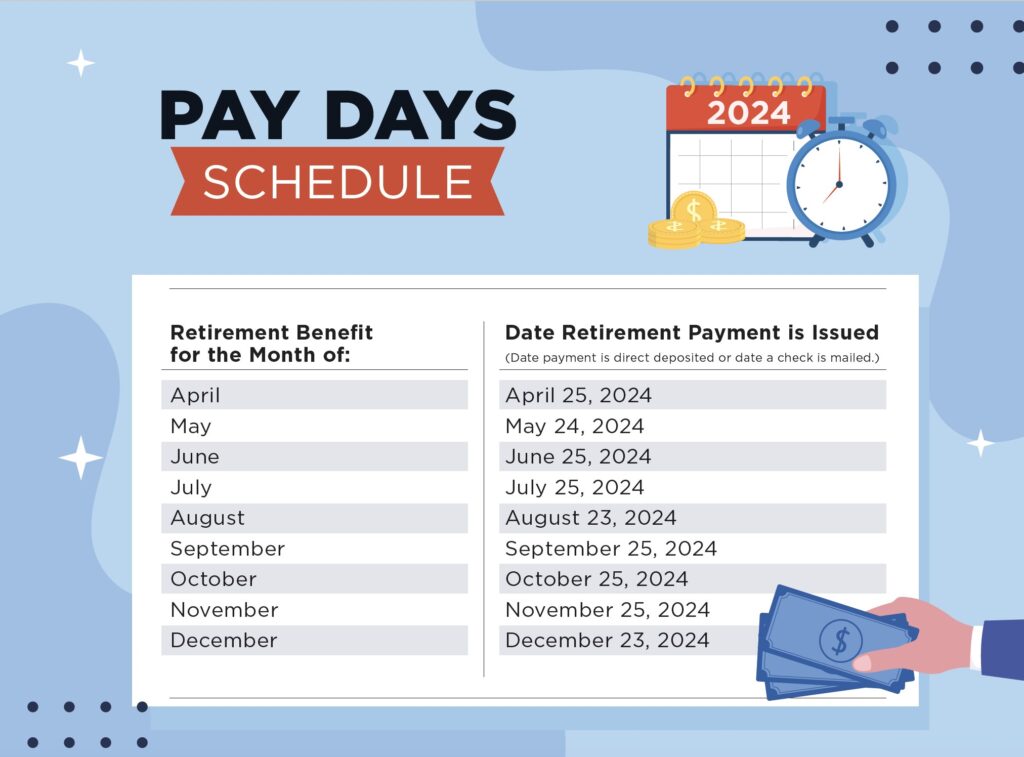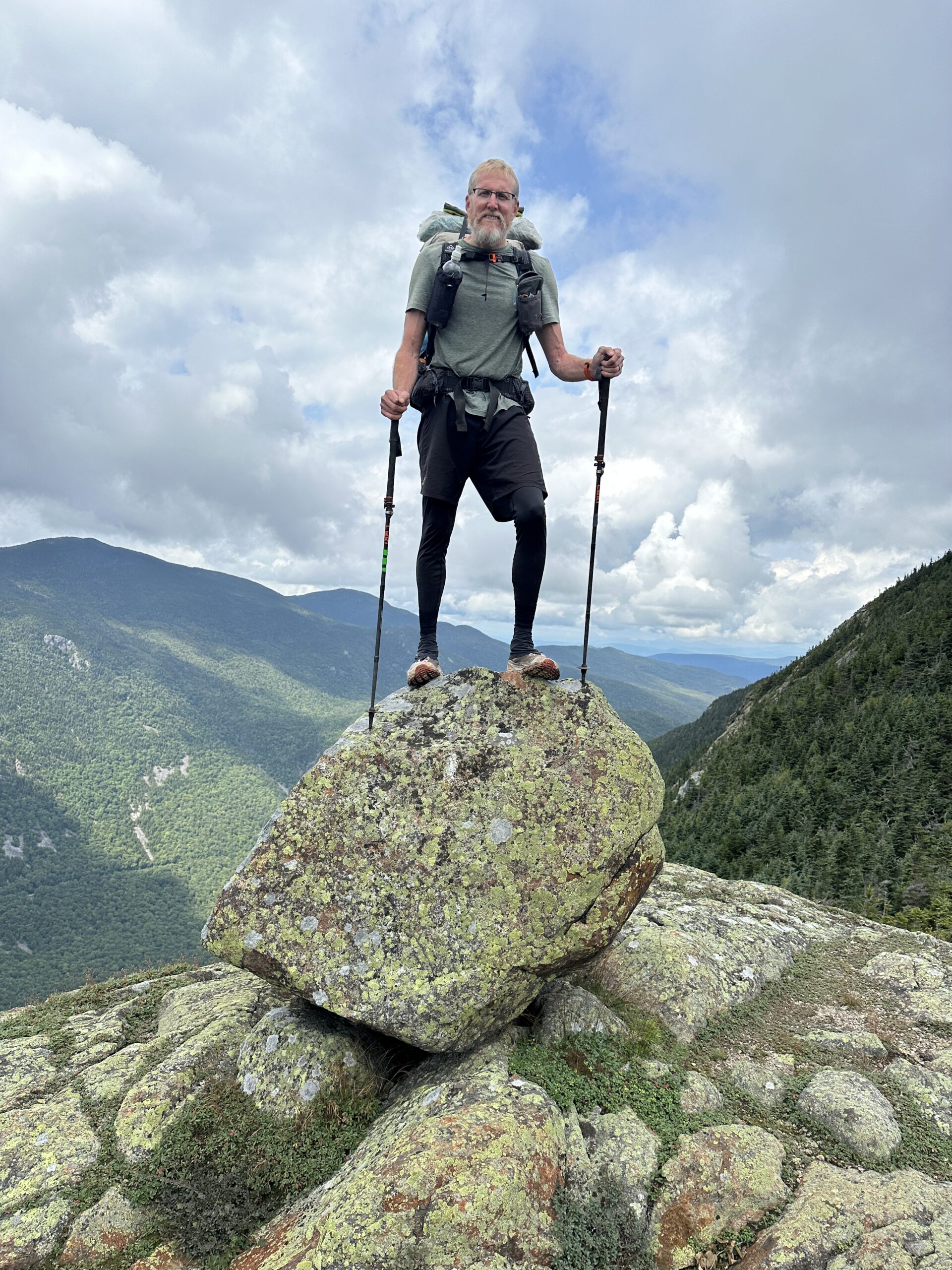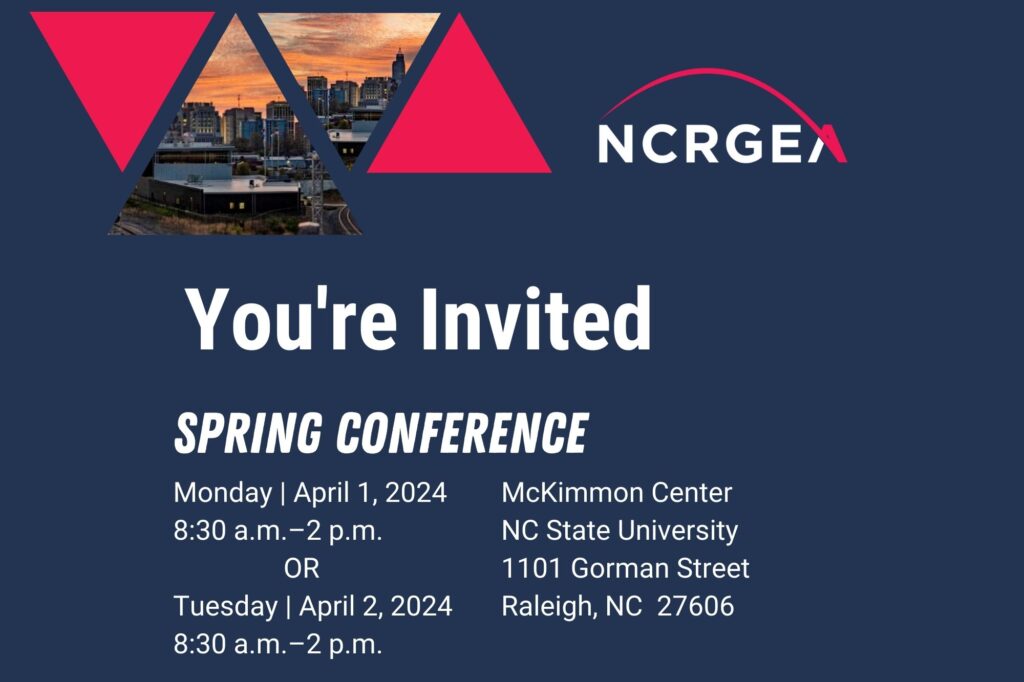RETIREE PAYDATES

Winter Edition 2023/2024 | Living Power Magazine

George Preiss hasn’t always been the outdoorsy type. When he began his career as a middle school language arts teacher, he befriended a colleague who kept inviting him to go camping, but he always declined. Finally, Preiss decided to accept the invitation and to his surprise, ended up loving the experience.
“Driving home from that first trip, we crossed the sign indicating the Appalachian Trail, and I was like, ‘What is the Appalachian Trail?’ I’d never heard of it,” Preiss says. “My friend explained that it was a 2,000-plus mile continuous trail through the Appalachian Mountains. And I told him, ‘We’ve got to do that.’”
Over the years, Preiss began to see hiking the Appalachian Trail as a goal for retirement. And when he wrapped up his teaching career in December 2022, he set his sights on finally making the hike a reality. Though he maintained an active lifestyle of walking and biking around his home in Wilmington, NC, Preiss says he didn’t do much hiking prior to tackling the trail.
“I showed up cold turkey, and I’d say a quarter to a third of the people I met on trail had a similar story,” he says. “This was their first hike. So it’s not that uncommon for people to get this idea in their head and do it.”
Preiss did other prep work, though, purchasing all the equipment he’d need on the trail and planning his trek to maximize the best possible weather conditions. On March 11, he set out from the southern entrance of the trail, in
Springer Mountain, Georgia. From there he spent the next 201 days—minus some breaks to nurse injuries—traversing the Appalachian Trail through Georgia, North Carolina, Tennessee, Virginia, West Virginia, Maryland, Pennsylvania,
New Jersey, New York, Connecticut, Massachusetts, Vermont, New Hampshire, and Maine.
Preiss says that one of the biggest misconceptions about hiking the Appalachian Trail is the belief that you’ll be alone in the forest the entire time. While he certainly enjoyed plenty of peaceful solitude hiking and camping through the wilderness, the journey also included stops in trail towns along the way where hikers can rest and replenish supplies.
After completing his trek in September, Preiss says he has gained a greater appreciation not only for hiking, but also his ability to face a challenge.
“I realized pretty early on that I’m a very determined person, and when I commit to something, I’m going to finish it,” he says. “But I’ll never do a six-month hike again with that magnitude. I did learn to love hiking, and I’ll love to go out for a week at a time and go see some new places in the United States—it’s going to be really fun.”
When Cynthia Ferebee retired after a more than 30-year career as a teacher and assistant principal, she knew she wanted to stay active.
Wednesday, March 20, 2024 | SSA Press Release

Social Security Commissioner Martin O’Malley today announced he is taking four vital steps to immediately address overpayment issues customers and the agency have experienced. Commissioner O’Malley testified before the U.S. Senate Special Committee on Aging and the U.S. Senate Committee on Finance (excerpt):
“For 88 years, the hard-working employees of the Social Security Administration have strived to pay the right amount, to the right person, at the right time. And the agency has done this with a high degree of accuracy over a massive scale of beneficiaries. But despite our best efforts, we sometimes get it wrong and pay beneficiaries more than they are due, creating an overpayment.
When that happens, Congress requires that we make every effort to recover those overpaid benefits. But doing so without regard to the larger purpose of the program can result in grave injustices to individuals, as we see from the stories of people losing their homes or being put in dire financial straits when they suddenly see their benefits cut off to recover a decades-old overpayment, or disability beneficiaries attempting to work and finding their efforts rewarded with large overpayments. Innocent people can be badly hurt. And these injustices shock our shared sense of equity and good conscience as Americans.
We are continually improving how we serve the millions of people who depend on our programs, although we have room for improvement, as media reports last fall revealed. We have also embarked upon a deep dive into the extent of the overpayment problem at Social Security, the root causes of these administrative errors, and the steps we can take as an agency to address these individual injustices.
Our deeper understanding of the complexities of this problem has set us on the following course of action:
Implementing these policy changes — with proper education and training across the people, policies, and systems of the agency — is an important but complex shift. And we are undertaking that shift with urgency, diligence, and speed.
I look forward to working with Members to discuss ideas that could address the root causes of overpayments.”
Social Security launched a comprehensive review in October 2023 of agency overpayment policies and procedures to address payment accuracy systematically. (See Learn about Overpayments and Our Process | SSA and Press Release | Press Office | SSA). These changes are a direct result of the ongoing review. Additionally, the agency recently announced it is working to reduce wage-related improper payments by using its legal authority to establish information exchanges with payroll data providers that will significantly reduce the number of improper payments, once implemented. (See Press Release | Press Office | SSA for more information). The agency will continue examining programmatic policy and making regulatory and sub-regulatory changes to improve the overpayment process. More details on these updates will be shared as they become available.
To watch the testimony and read Commissioner O’Malley Statement for the Record, visit Keeping Our Promise to Older Adults and … | Senate Committee On Aging and Hearing | Hearings | The United States Senate Committee on Finance.
Winter 2023/2024, Living Power Magazine

The executive board and staff of the North Carolina Retired Governmental Employees’ Association (NCRGEA) is proud to award Wilkes County State House Representative Jeffrey Elmore as our 2023 Legislator of the Year. Elmore is the first legislative member of the year named by the association.
Elmore serves the 94th House District, representing Wilkes and Alleghany counties. In his 11th year in the North Carolina General Assembly, Elmore serves as a House appropriations chairperson and also serves on the House Pensions and Retirement Committee, among other appointments.
Elmore worked tirelessly to secure bonus money for TSER retirees. In addition to his role in the legislature, Elmore also works as an educator in his 23rd year of teaching and has also served as president of the Professional Educators of North Carolina (PENC), a nonpartisan group of 7,000 teachers in North Carolina. Prior to serving in the state legislature, Elmore was a planning board member, commissioner in North Wilkesboro, and he served as chairman of the town’s board of adjustments.
A native of Wilkes County, Elmore has deep roots in the region. He resides in North Wilkesboro with his wife and two children, where he’s also a member of First United Methodist Church.
“We are grateful to Rep. Elmore for his service and for championing North Carolina’s public service retirees,” said NCRGEA Executive Director Tim O’Connell.
By Dale R. Folwell, CPA
State Treasurer of North Carolina

The only thing that beats a happy new year is a healthy new year! The State Health Plan offers many preventive care services and medications at no cost to members. Plan members can start their year off right by taking advantage of all the preventive care benefits available to them on all the options the State Health plan offers, including the Base PPO Plan (70/30), Enhanced PPO Plan (80/20), and Humana Medicare Advantage plans.
Preventive care is routine health care that includes screenings, checkups, and patient counseling to help prevent illnesses or disease. Preventive care is covered at 100% when it is provided by an in-network provider, when the claim is filed as a preventive visit, and when services are identified as preventive care under the Affordable Care Act. Examples include mammograms, preventative colonoscopies, and immunizations. There may be exceptions, so it’s important to know what qualifies as preventive care, as well as what questions to ask your provider to avoid extra costs. Good questions to ask include:
For members enrolled in Humana Medicare Advantage Plans, your coverage includes additional benefits, such as the SilverSneakers® fitness program—free of charge—and the Go365 wellness and rewards program, which offers personalized activities, tracking, support, and rewards to keep your health top of mind. To learn more about SilverSneakers and other preventive benefits, visit Humana’s website at Your.Humana.com/ncshp.
These great benefits mentioned above are all part of the Humana Base Medicare Advantage Plan, which is offered to plan members for a $0 premium with Medicare-eligible spousal coverage for just $4 a month, all at no cost to taxpayers. For more information, members are encouraged to visit the State Health Plan’s website at SHPNC.org.
Fitness has always been important to Julie Lowery. As a certified registered nurse anesthetist for more than 25 years at UNC Hospitals, Lowery saw fitness as an extension of her health—a way to keep her body strong and vibrant.

NCRGEA welcomes our members, pre-retirees and guests to Raleigh on Monday or Tuesday | April 1 or 2 for our Spring Conference! The venue space is limited, so we are offering the event again on Tuesday. Please choose which date works best for you.
We’ll have free continental breakfast to enjoy as you attend our morning sessions, which include:
There will be many vendors at information tables to answer your questions and provide one-on-one assistance. Giveaways will occur during the day!
Breakout sessions for state and local government retirees will be held to provide updates on your benefits. Candidates for State Treasurer will speak; this is the office that manages the pension for our retirees. Our current State Treasurer will discuss the current news from their office, and presentations will be given by the State Employees Credit Union, the Local Government Federal Credit Union, as well as CenterWell and AMBA.
Door prizes will occur throughout the presentations!
We will have a catered lunch that is free, and we hope you bring a guest to also enjoy this day of fun! They will also attend free~